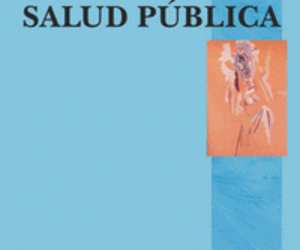Cuba’s Secretive Public Health Policies Criticized in Medical Journal
- Submitted by: lena campos
- Health and Medicine
- 07 / 11 / 2013

An article titled “Secret Epidemics: Cuba’s Public Health Ethics” (“El silencio epidemiológico y la ética de la Salud Pública cubana”) appears in the most recent issue of Cuba’s quarterly Public Health Journal (Revista Cubana de Salud Publica). Written by National School of Medicine physician Luis Suarez Rosas, the work criticizes the Cuban government’s information policies in the area of public health.
As almost everyone knows, official Cuban newspapers showed themselves immensely reluctant to publicly acknowledge the different epidemics that broke out around the country in recent years. Whenever there is an outbreak of dengue, for instance, major and local papers seem to turn their backs on the problem or show more interest in the misfortunes of distant nations. The massive campaigns launched by the country’s public health system are evident for most citizens, save government journalists.
Unsatisfied with this state of affairs (as many of us are), Dr. Suarez Rosas elucidates the disadvantages inherent to such secretive practices. In his article, he points out that there is no shortage of scientific knowledge about and experience in the management of epidemics, in Cuba and abroad. This, which should help reduce the number of such outbreaks and their impact on the population, is only undermined by concealing information from the public, a practice which encourages the spread of every imaginable rumor.
Cloaking the reality of an epidemic with a veil of silence, Suarez argues, in no way contributes to reducing the incidence of the disease, for an uninformed population can never attain a realistic perception of the risk of contagion or the gravity of an illness. It isn’t hard to see how such questionable practices hinder the social mobilization needed to combat such means of disease transfer as the Aedes aegypti mosquito, which is a carrier of dengue. Suarez asks:
“Does the fact that doubt exists as to whether a dengue epidemic is currently being concealed from the public in Cuba in keeping with the ethical standards reached by Cuba’s public health system?”
According to the author, the common strain of dengue was first introduced into Cuba in 1977. Despite concerted efforts to eradicate the carrier of this disease, a considerable part of the island’s population was infected. As of the tragic epidemic of 1981, this insidious virus would become one of Cuba’s most persistent epidemiological problems.
In the 80s, Cuba’s national public health system was given considerable financial impetus and sought to become an internationally renowned healthcare model. Deprived of East European subsidies starting the 90s, the system invariably deteriorated, despite different government plans and initiatives of varying success.
Fumigation campaign worker. Photo: Caridad
Fumigation campaign worker. Photo: Caridad
New dengue epidemics have since broken out across Cuba’s public health panorama, most intensely between 2000 and 2002 and in 2006. Suarez was unable to find official mention of the dengue cases reported in 2012, though less secrecy surrounds the cholera outbreak experienced this y
Source: Havana Times.org
Comments